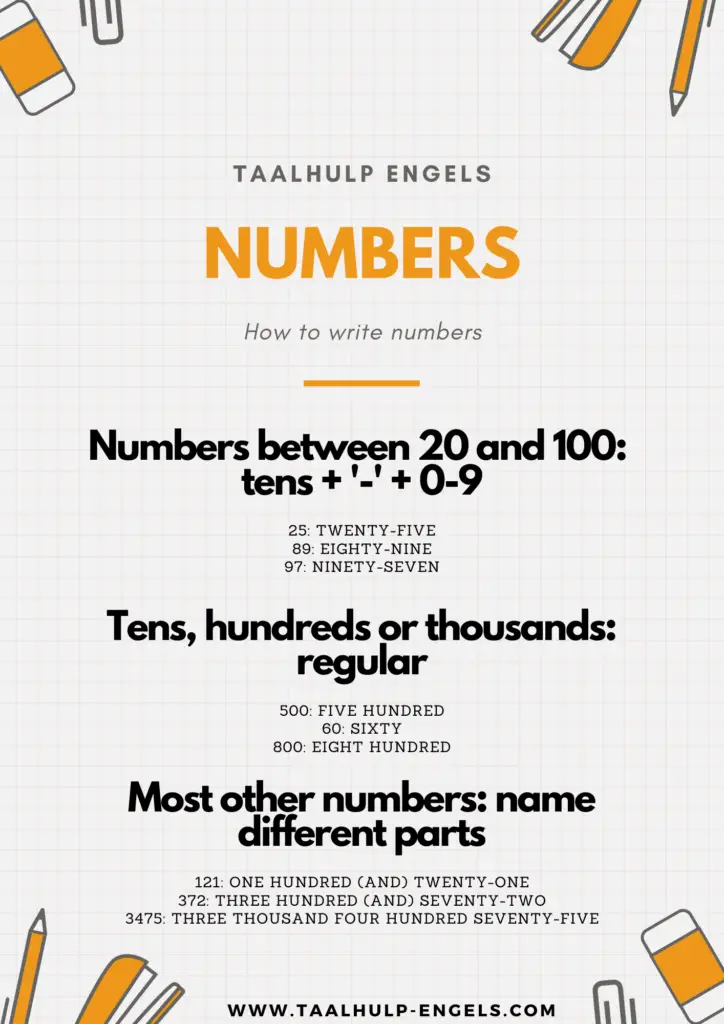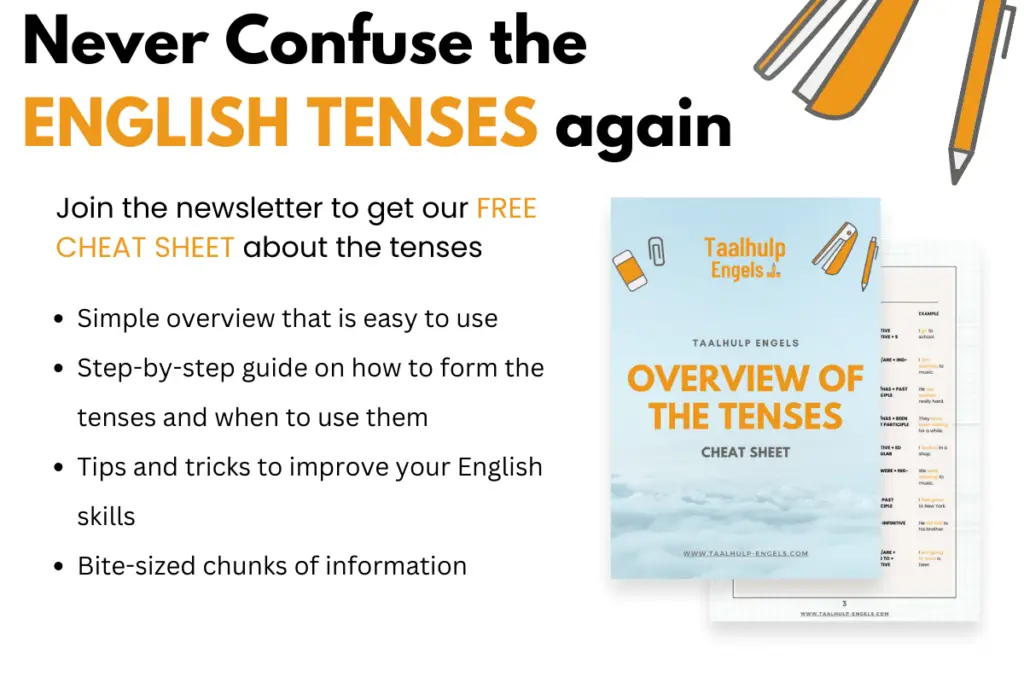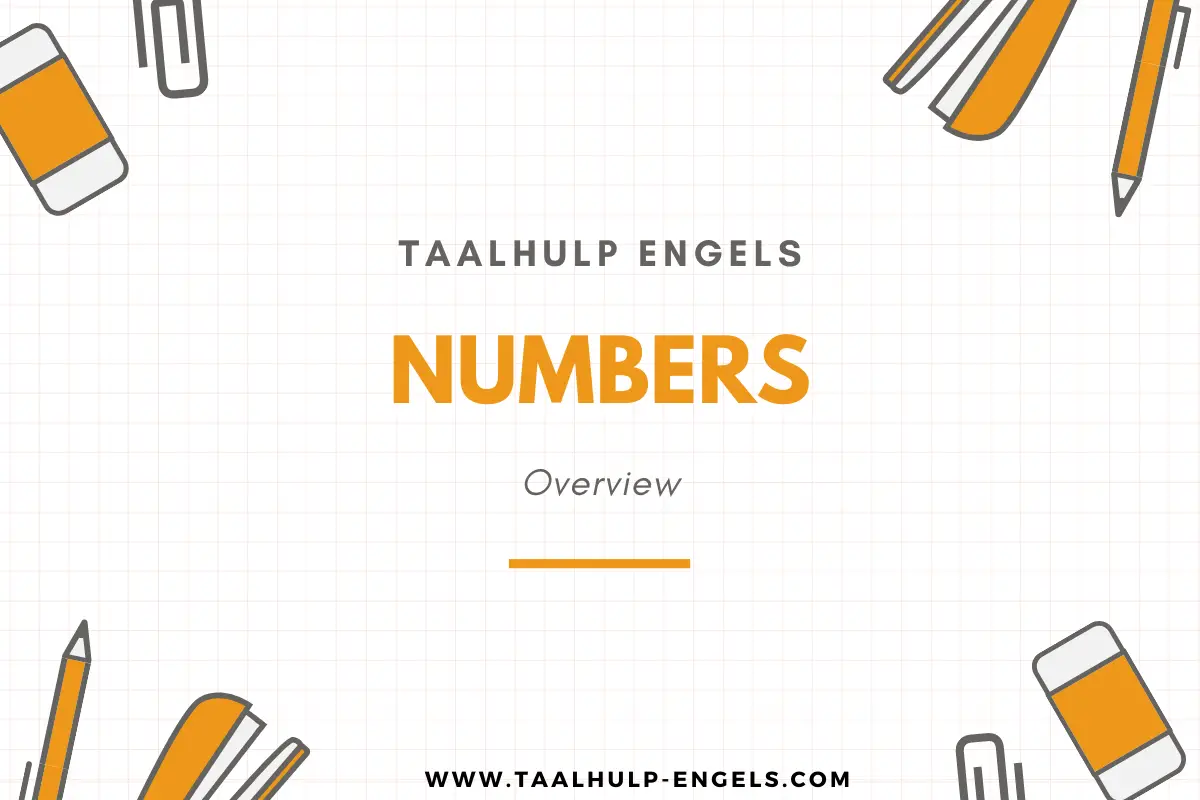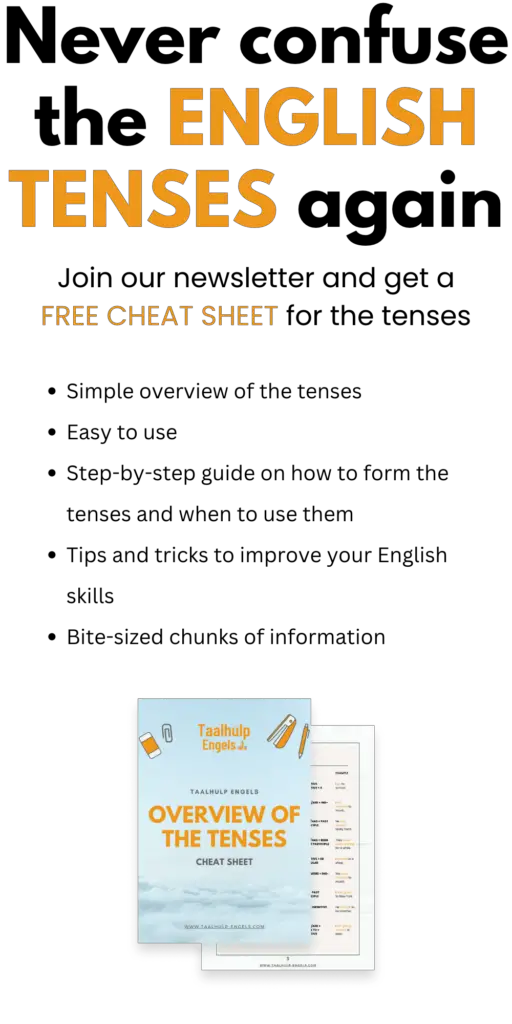Numbers in English (or English numerals) are very useful in a lot of different situations. If you want to talk about how old you are, how many cats you have, or even how many beers you drank last night, you need to know the numbers. They are literally everywhere, but before you can use them, you need to know what they are exactly and how to form the larger ones.
On this page, you have an overview of the different numbers and how you can form them. It’s important that you know that this article is about numbers to talk about quantities and not about the order in which things appear.
Numbers from 1 to 20
| 1 | one | 11 | eleven |
| 2 | two | 12 | twelve |
| 3 | three | 13 | thirteen |
| 4 | four | 14 | fourteen |
| 5 | five | 15 | fifteen |
| 6 | six | 16 | sixteen |
| 7 | seven | 17 | seventeen |
| 8 | eight | 18 | eighteen |
| 9 | nine | 19 | nineteen |
| 10 | ten | 20 | twenty |
The table above shows you how to go from 1 to 20. You should study these because most of them are irregular and they are building blocks to form bigger numbers.

0 is a special numeral because it is pronounced in a few different ways.
| zero | The numeral ‘0’ is pronounced as zero when you are talking about the number without any context. This can also be the case with phone numbers and decimals. |
| nought | The British way of saying ‘0’. This one is not really used in the United States. |
| nill | This one is used to talk about sports results. |
| o | The numeral ‘0’ can be pronounced as the letter ‘o’ when you’re talking about years or the temperature. |
Numbers between 20 and 100
If you want to form numbers bigger than 20, it’s useful to know how to say the tens in English. You can find those in the table below:
| 10 | ten |
| 20 | twenty |
| 30 | thirty |
| 40 | forty |
| 50 | fifty |
| 60 | sixty |
| 70 | seventy |
| 80 | eighty |
| 90 | ninety |
| 100 | (one) hundred |

Numbers between 20 and 100 are easy to form. You use the numbers of the tens, followed by a hyphen (-) and a number between 0 and 9. Take a look at the following examples:
| 32 | thirty-two |
| 76 | seventy-six |
| 37 | thirty-seven |
| 28 | twenty-eight |
| 97 | ninety-seven |
| 65 | sixty-five |
| 44 | forty-four |
| 58 | fifty-eight |
| 73 | seventy-three |
| 81 | eighty-one |
Pay attention that you use a hyphen (-) between the two words.
Numbers bigger than 100
In order to know how to say numbers bigger than 100, you need to know how to say the hundreds. Those are regular in English.
| 100 | one hundred |
| 200 | two hundred |
| 300 | three hundred |
| 400 | four hundred |
| 500 | five hundred |
| 600 | six hundred |
| 700 | seven hundred |
| 800 | eight hundred |
| 900 | nine hundred |
The thousands are also regular. You need to say the number of the thousands, followed by the word ‘thousand’.
| 1000 | one thousand |
| 2000 | two thousand |
| 3000 | three thousand |
| 11000 | eleven thousand |
| 15000 | fifteen thousand |
| 20000 | twenty thousand |
| 63000 | sixty-three thousand |
| 75000 | seventy-five thousand |
| 90000 | ninety thousand |
When you want to use a number that is not a ten, hundred or thousand, you need to name the different parts. If you are dealing with a number smaller than 1000, you can place ‘and’ between the hundreds and tens, but this is mostly used in British English.
| 121 | one hundred (and) twenty-one |
| 372 | three hundred (and) seventy-two |
| 789 | seven hundred (and) eighty-nine |
| 1276 | one thousand two hundred seventy-six |
| 1765 | one thousand seven hundred sixty-five |
| 3475 | three thousand four hundred seventy-five |
| 8743 | eight thousand seven hundred forty-three |
| 9876 | nine thousand eight hundred seventy-six |
| 23678 | twenty-three thousand six hundred seventy-eight |
| 65437 | sixty-five thousand four hundred thirty-seven |
| 112365 | one hundred (and) twelve thousand three hundred sixty-five |
Really big numbers
You can see some very big numbers below.
| 1 000 000 | one million |
| 1 000 000 000 | one billion |
| 1 000 000 000 000 | one trillion |


Exercises
- Numbers 1-100 Exercise 1
- Numbers 1-100 Exercise 2
- Numbers 1-100 Exercise 3
- Numbers 1-100 Exercise 4
- Numbers 1-100 Exercise 5
- Numbers 1-100 Exercise 6
- Numbers 1-100 Exercise 7
- Numbers 1-100 Exercise 8
- Numbers 1-100 Exercise 9
- Numbers 1-100 Exercise 10


